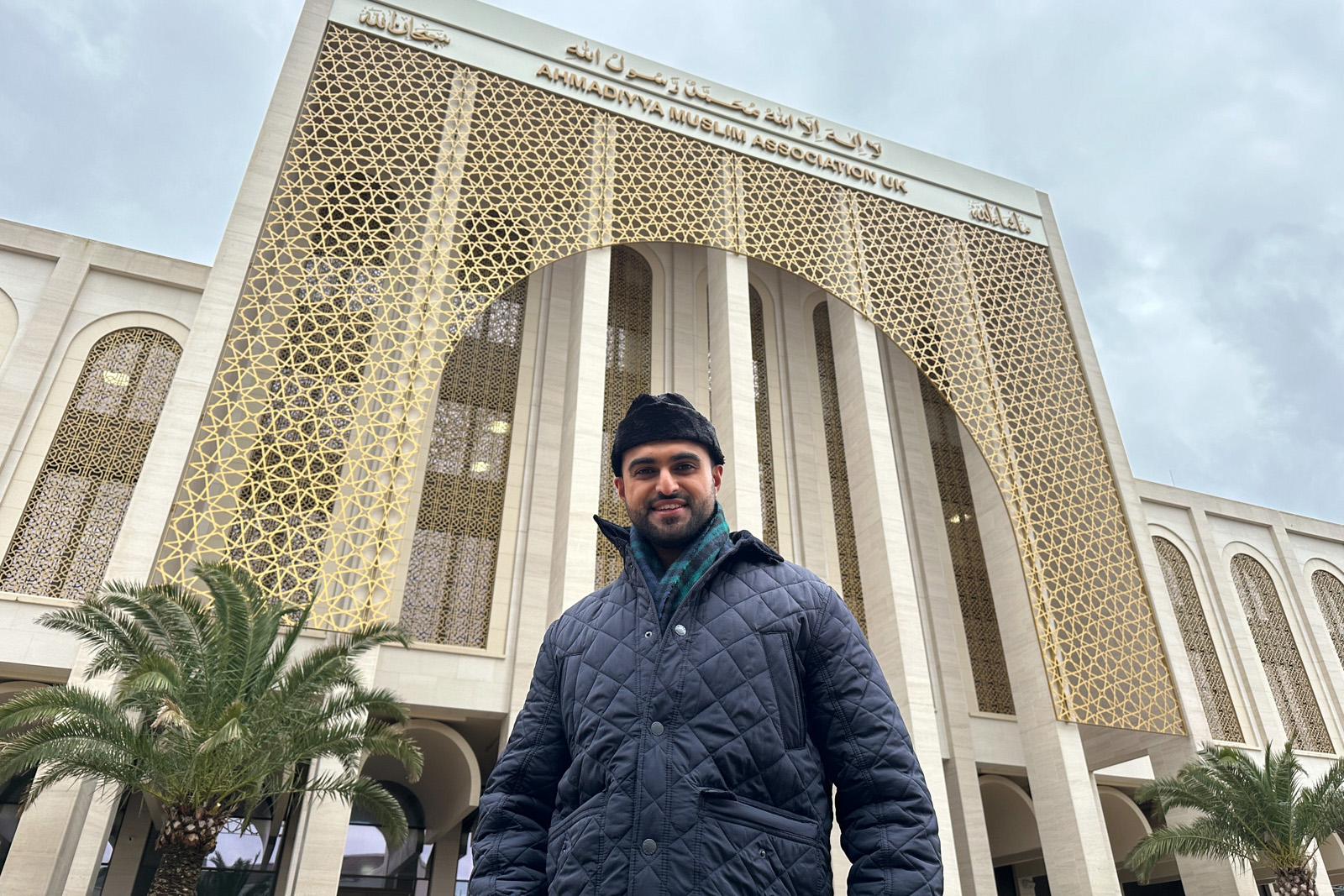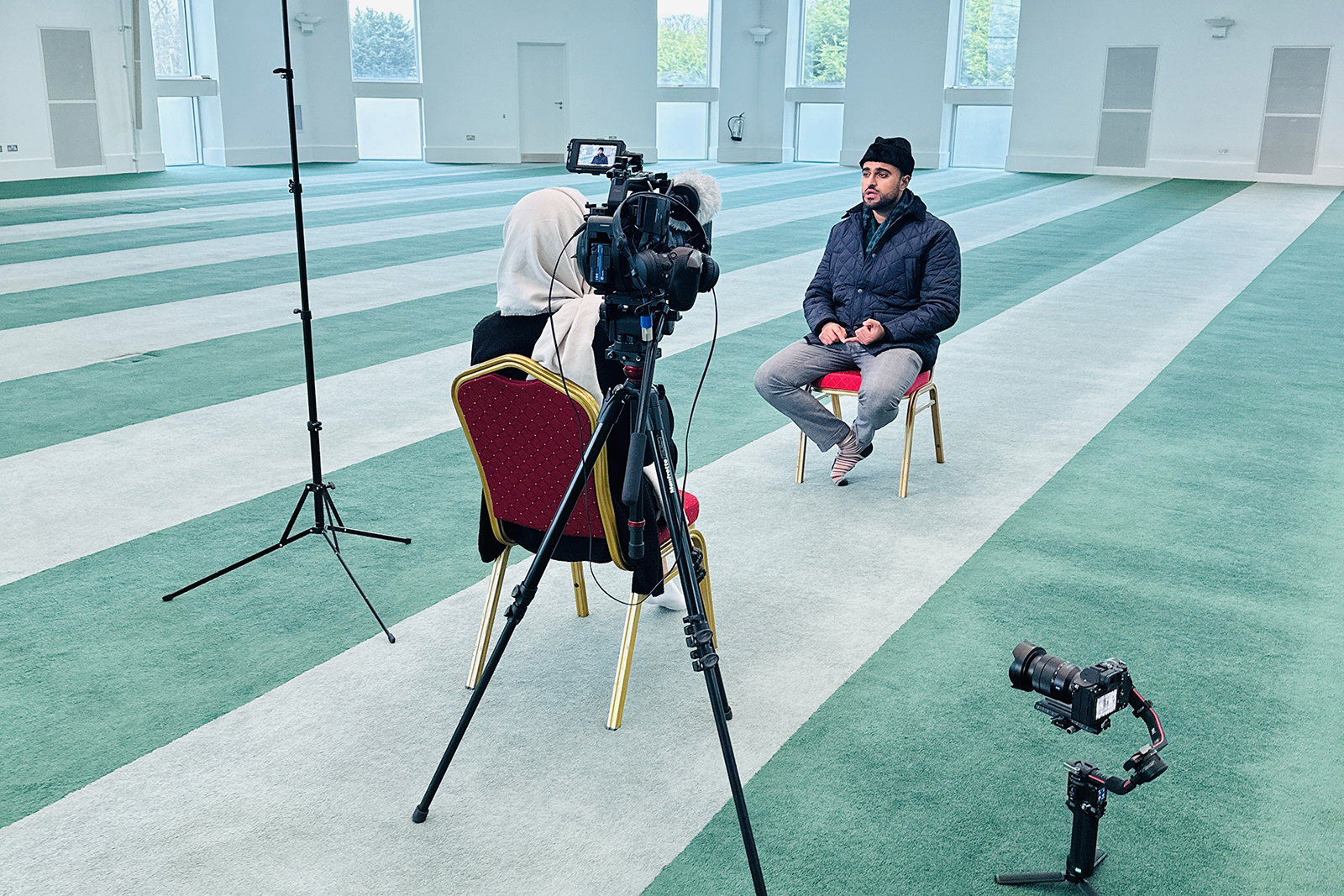My Ramadan: Sabah Ahmedi
Working at the UK’s largest mosque, Sabah Ahmedi has carved out a prominent social media presence as The Young Imam. Here he talks about his Ramadan routine and what the holy month means to him
–

Sabah Ahmedi, 30, is an imam at the UK’s largest Muslim place of worship, Baitul Futuh mosque in Morden, south London. He regularly posts on social media as The Young Imam, using Instagram and X to educate followers about his faith.
Ahmedi writes explainers on various aspects of Islam and addresses topics from current affairs to mental health within the Muslim community. His accessible style has led to guest appearances on high-profile channels including the BBC to CNN.
Here, he shares his experience of Ramadan, how his daily life is shaped by his work and what he wants non-Muslims to understand about the holy month.
This interview has been edited for length and clarity.
Tell us about your early-morning Ramadan routine
I tend to struggle with waking up in the mornings during Ramadan. My normal suhoor consists of porridge or oats, fruit, water, and yoghurt, but sometimes it is difficult to eat at 4am. In the beginning, I’ll eat lighter foods at suhoor and have a big iftar. But as the month progresses and I get used to fasting, I’ll eat something heavier, like eggs, toast and beans first thing, and my dinner will get smaller. You come to realise just how much food your body needs.
What does a typical day during Ramadan look like for you?
Once I’ve woken up and eaten, I lead fajr prayers in my living room with six or seven other people from the local community. I’ll then give a short sermon from the Qur’an. Later in the morning, I get my children ready for school and head to my office at the mosque for work.
A big part of my job is to engage with non-Muslims and to help them understand what Ramadan means for Muslims around the world. My role is very outward-facing, so I’ll do interviews with different people and media outlets. I also host iftars at the mosque. This year, I’m hosting the England Cricket Board, UKTV, BBC Studios, and other journalists. I’m also going out to a number of companies to talk about Ramadan and the experience of Muslims in the workplace.

How does your work as an imam shape your experience of Ramadan?
I generally work from the press office at the mosque, so during the day I’m based there. But, during Ramadan, my job tends to take shape during iftar time. I’m able to host people and give them an experience of what Muslims go through when they break their fast. The experience allows non-Muslims to understand why Ramadan is a spiritual time for so many Muslims across the world. On 30 March, we are hosting The Big Iftar at the Baitul Futuh mosque and anyone can come to break their fast. There will be speeches from members of parliament and other faith leaders. Guests will receive a tour of the mosque and stay for dinner.
As a father to two young children, how do you make Ramadan special for them?
My children are three and five. My wife does a great job of helping them understand what Ramadan means to Muslims. She has put up decorations and posters that explain different aspects of the month for them. Even though they are young, we want to introduce that love for Islam and demonstrate the importance of Ramadan. We also all pray together and I’ve been educating them on the situation in Gaza and how there are children over there who are dying. Explaining to them that there are children like them who don’t have food and water has helped them understand Ramadan better.
What does Ramadan mean to you?
For me, Ramadan is exactly as the holy Qur’an defines it — a time for us to become righteous. It’s like a reset button. A lot of friends of mine express how they struggle to pray five times a day during the year, but Ramadan allows them to focus back on their prayers. Then, once Ramadan is over, they try to maintain the hard work that they’ve done. I think this demonstrates just how Ramadan is meant to influence us as Muslims.
What would you like non-Muslims to understand about Ramadan?
I would like them to know that Ramadan is about more than not eating or drinking. It’s much deeper than that. It’s about remembering the favours God has bestowed upon us and being grateful for what we have. It also allows us the opportunity to reconnect with God — a connection we might not always focus on during the year. We waste a lot of time on food and drink, but Ramadan shows us that we can do more with it and focus on important things like prayer, reading the Qur’an and learning more about our faith.
Topics
Get the Hyphen weekly
Subscribe to Hyphen’s weekly round-up for insightful reportage, commentary and the latest arts and lifestyle coverage, from across the UK and Europe
